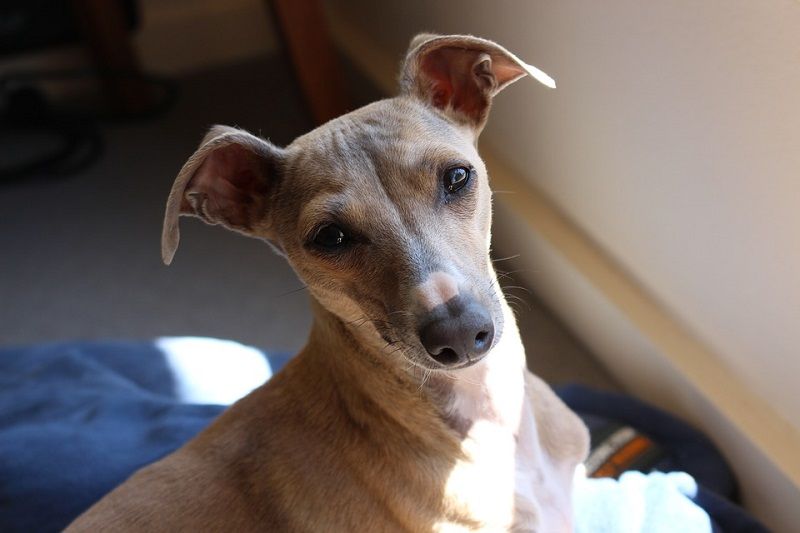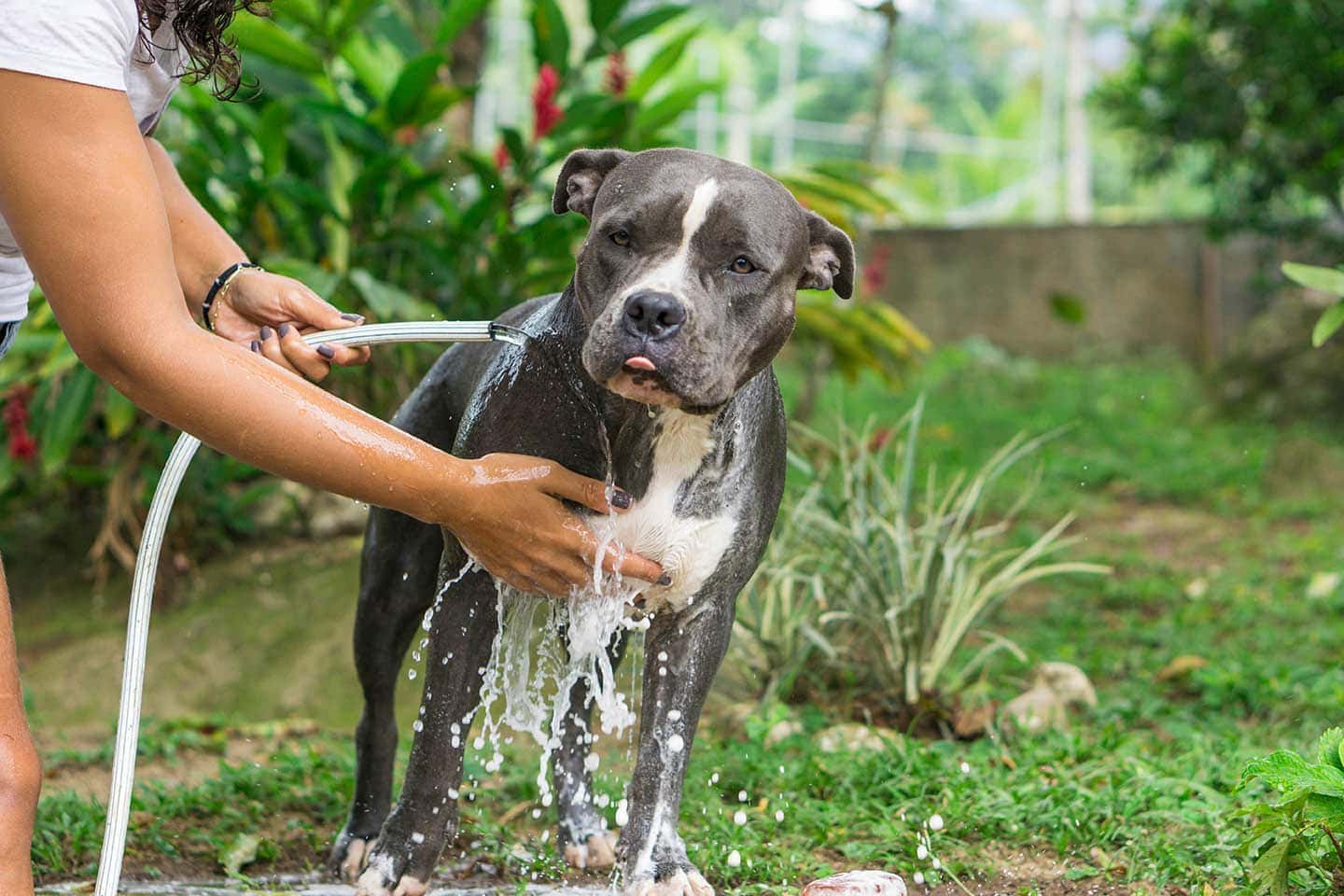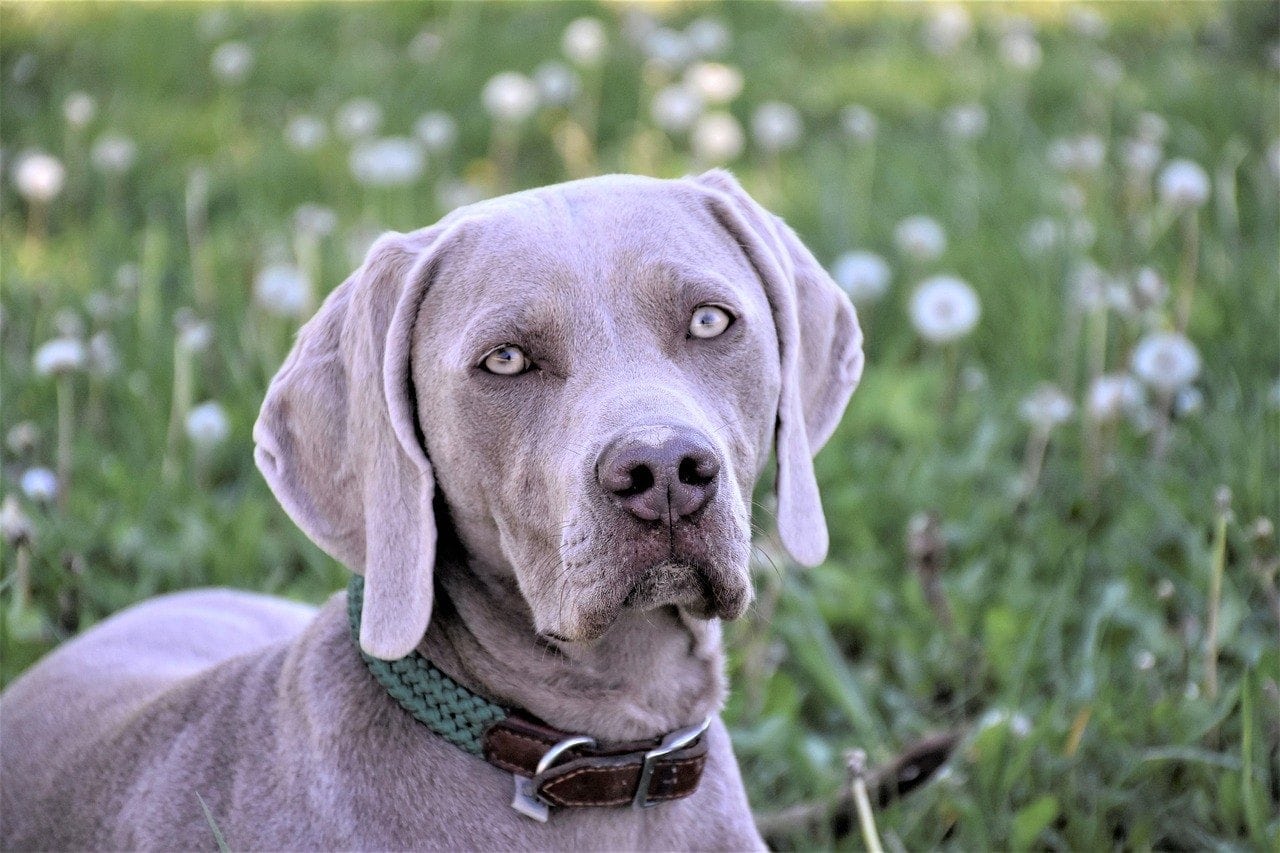Can Dogs Eat Goldfish Crackers? Vet-Reviewed Facts & Safety Guide

Updated on
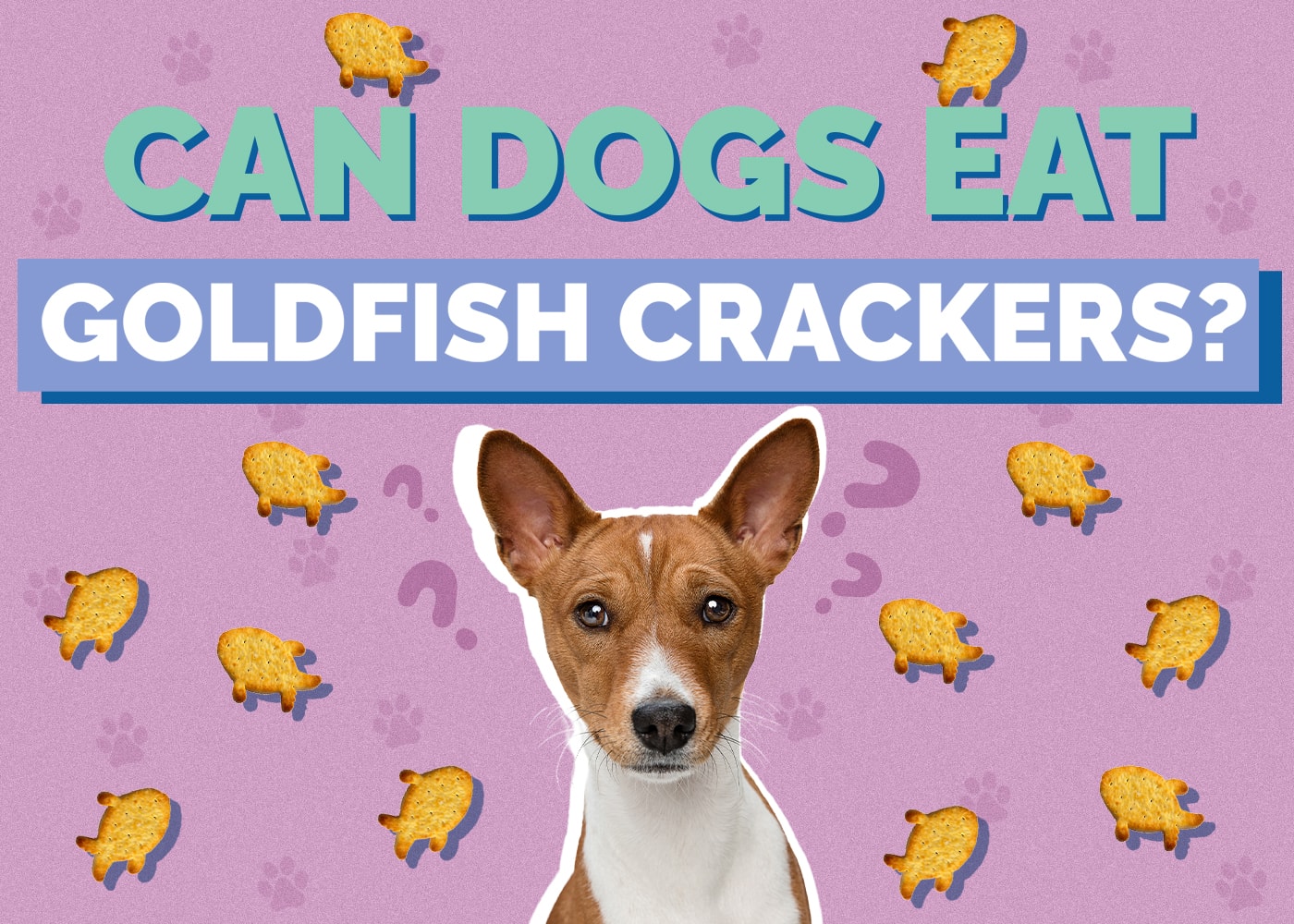
If your dog is like most, they are not picky when it comes to food. Dogs will eat just about anything that they can get their paws on, whether it is good for them or not. Your kids love those goldfish crackers that you keep in the cupboard, and chances are that your pooch loves them just as much. But the question is: are goldfish crackers good for dogs? Is this a food that they should eat at any time?
When considering whether or not dogs can eat goldfish crackers, the answer should be no. Dogs should not eat goldfish crackers because they won’t benefit from it in the slightest. Goldfish crackers also contain onion powder, and although it’s present in very small amounts, onions are toxic to dogs.
However, if your pooch scoops up a goldfish cracker or two from the floor, they will likely not cause them any significant harm, but this will also depend on the size of the dog and amount of onion powder in it. Before making any decisions about your dog’s nutrition, you should always consult with your veterinarian.
Goldfish Crackers: Here Is What They Are Made Of
It’s a good idea to know exactly what goldfish crackers are made of, so you can understand how the ingredients might affect your pooch and which ones are the reason for why goldfish crackers should be avoided. Here are the ingredients you should know about:
Enriched Wheat

The predominant ingredient in goldfish crackers is enriched wheat, which is not toxic to dogs but is certainly not healthy for them. If your pooch is going to eat carbohydrates, which is important for energy, they should eat it as a part of their complete and balanced diet. Too many empty carbs made of enriched wheat can predispose some dogs to obesity in the long run, depending on their diet, age, underlying health issues, lifestyle, and level of activity.
Some dogs may be allergic to wheat and should avoid products containing it. Speak to your veterinarian if your dog is suffering with allergies, which usually manifest as skin issues or gastrointestinal concerns after they’ve eaten something they shouldn’t have.
Cheddar Cheese
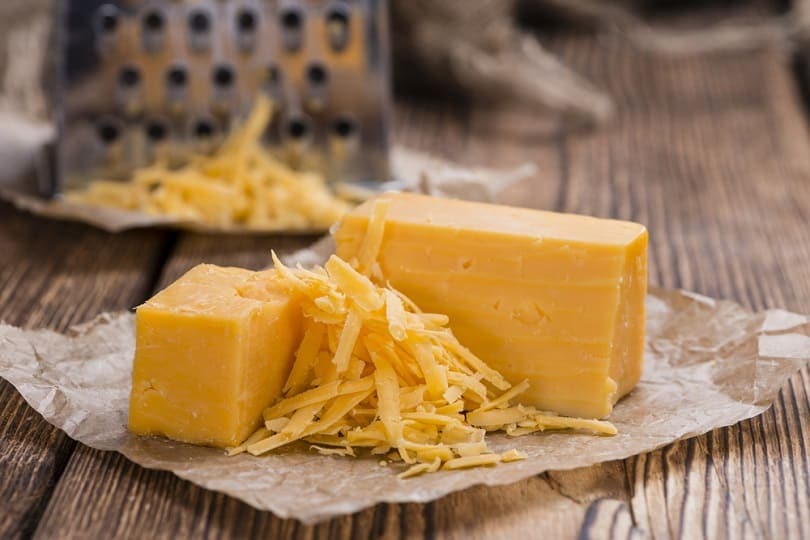
Cheese is a decent source of protein, and dogs love the flavor. Cheese also contains important nutrients like calcium and vitamin B. However, it also contains fat, which is not good for dogs if fed in excess, so it should not be provided as a regular part of your dog’s diet.
Although some dogs may eat cheddar cheese in moderation and occasionally without any signs of a stomach upset, many dogs are lactose intolerant and should not eat cheese. Food intolerance refers to adverse food reactions that do not involve the immune system, unlike food allergies. Lactose intolerance is quite common in dogs, and signs include diarrhea, bloating, and abdominal discomfort.
Vegetable Oils
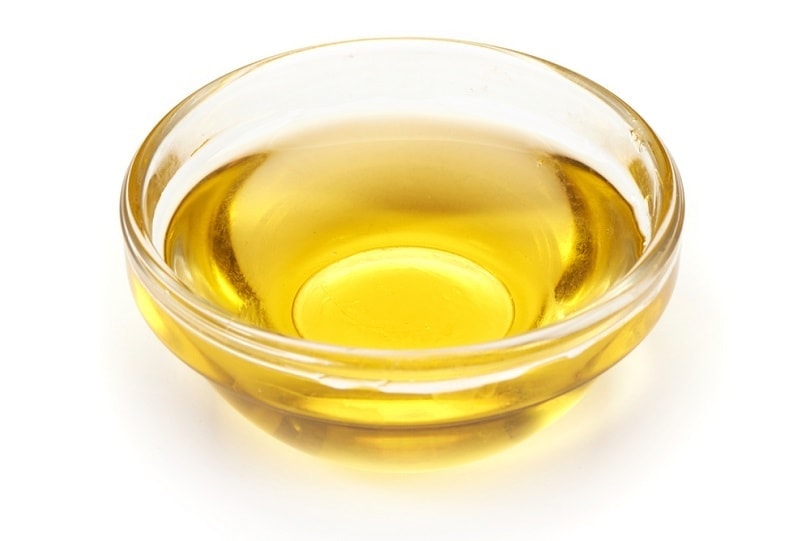
Dogs don’t need any extra oil added to their diet to maintain good health. They get all the fatty acids they need from the balanced commercial food that you feed them. Vegetable oils made from canola, sunflower, and soybean can be included in the ingredients list of goldfish crackers.
Vegetable oils are not toxic to dogs and may even have some benefits, but excess can lead to a stomach upset.
Salt and Onion Powder
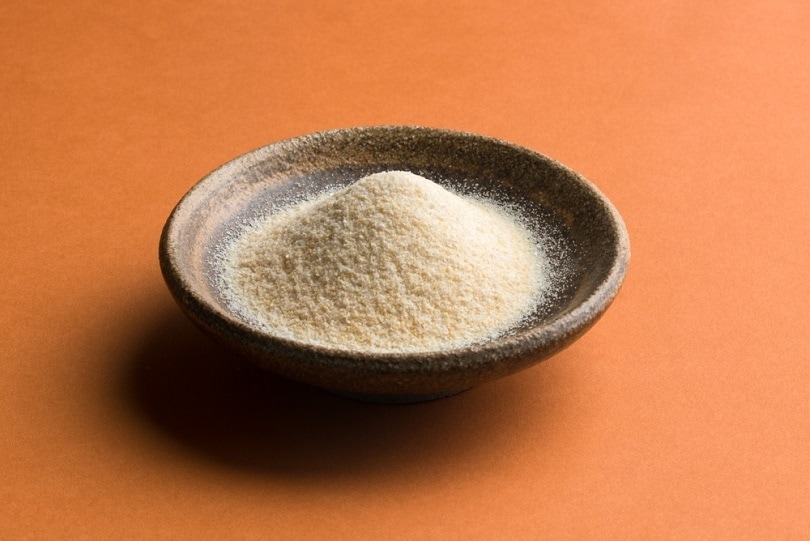
Other potentially troublesome ingredients found in goldfish crackers include salt and onion powder. Salt can be harmful to dogs if too much is eaten, especially without access to fresh water, although this is quite unlikely to happen if a dog accidentally eats a few goldfish crackers. Luckily, salt is one of the last ingredients on the list, and a dog would need to eat a very large amount of crackers, even hundreds of them, in order to experience signs related to excess salt.
Onion powder in the crackers can also be concerning, particularly in very small dogs, puppies, or more vulnerable breeds, like the Akita and Shiba Inu. Onions are toxic to dogs if ingested at doses of 15-30 grams/kg body weight. Signs associated with onion toxicity may include lethargy, weakness, pale gums, jaundice, difficulty breathing, vomiting, diarrhea, and others. Like the salt, garlic powder is low on the ingredients list, which means that little of it is used. A goldfish cracker or two is unlikely to hurt, but they will also not bring any benefit to your dog.
So, Should Dogs Eat Goldfish Crackers or Not?
The bottom line is that it is best if your dog skips the goldfish crackers and sticks with homemade and commercial treats for snacks. However, if your pooch gets a hold of one or two of those goldfish crackers, they should not experience any adverse side effects, but do not make a habit out of it.
Final Thoughts
Now that you know all about what is in goldfish crackers and how the ingredients could affect your pooch, you can have peace of mind in knowing that you are making an educated decision when deciding whether to let your dog eat Goldfish Crackers. While we think that there are plenty of other awesome snack options to choose from, there is generally very little or no risk if your dog accidentally eats a few. Has your dog ever eaten goldfish crackers? We want to read about your thoughts in our comments section below.



